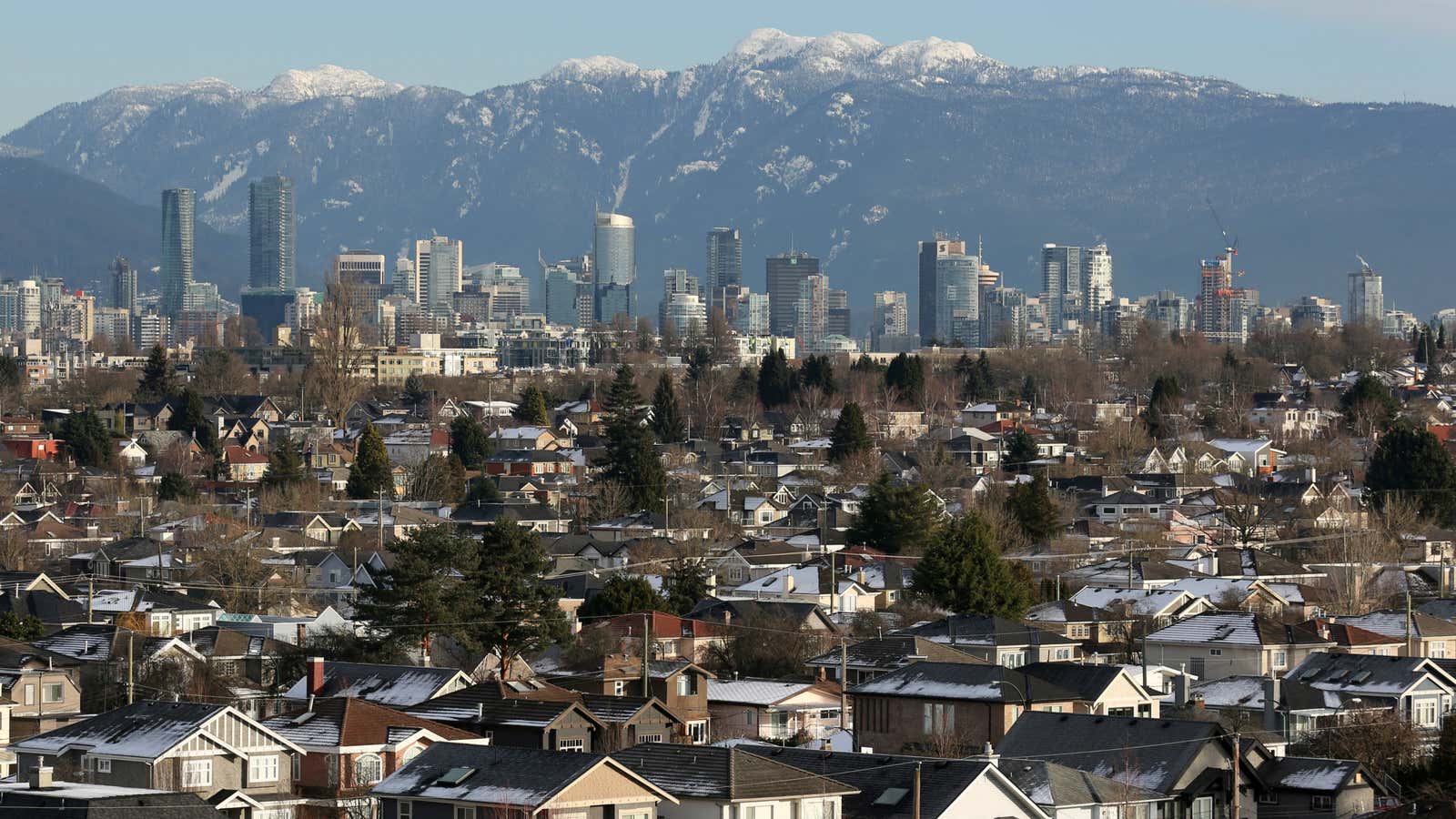For a while, it seemed like Canada had solved one of the thorniest problems that plague many big cities, from London to San Francisco, Sydney, and beyond: how to get an overheating property market under a control.
A year ago, house prices in Vancouver were rising by more than 30% year-on-year. In August 2016, the regional government imposed a 15% tax on foreign property buyers. It was an effort to deter overseas buyers—many of whom were from China—who used the weak Canadian dollar to help purchase investment property, along with other measures to rein in domestic buyers who took advantage of low interest rates to take out hefty mortgages.
The growth in Vancouver house prices markedly slowed. Notably, the share of houses bought by foreigners fell from 13% in August 2016 to just under 3% in May 2017, according to the British Columbia Ministry of Finance (pdf).
But it’s not clear that this scheme has been a complete success. Prices for new houses, which are arguably the most attractive to foreign buyers, started to climb again at the start of the year. In June, new house prices rose 6% from a year earlier, the most since mid-2010.
This all suggests that the impact of the foreign-buyer tax may be temporary. This could serve as a warning to Toronto, which imposed a similar tax in April this year. Canada’s largest city has seen breakneck property price growth slow down recently, but it’s too early to say whether the tax permanently deters foreign demand.
In Vancouver, although property prices overall have decelerated in recent months, the average price of a home in the city was a record C$1,019,400 (US$802,800) in July. That’s hardly comforting for most ordinary buyers.
